These zines use humour, personal experience and political activism to explore the bloody reality of menstruation.
Rag mags and monthly issues: Five period zines to stop you seeing red
Words by Nicola Cookwords by Loesja Vigouraverage reading time 6 minutes
- Article
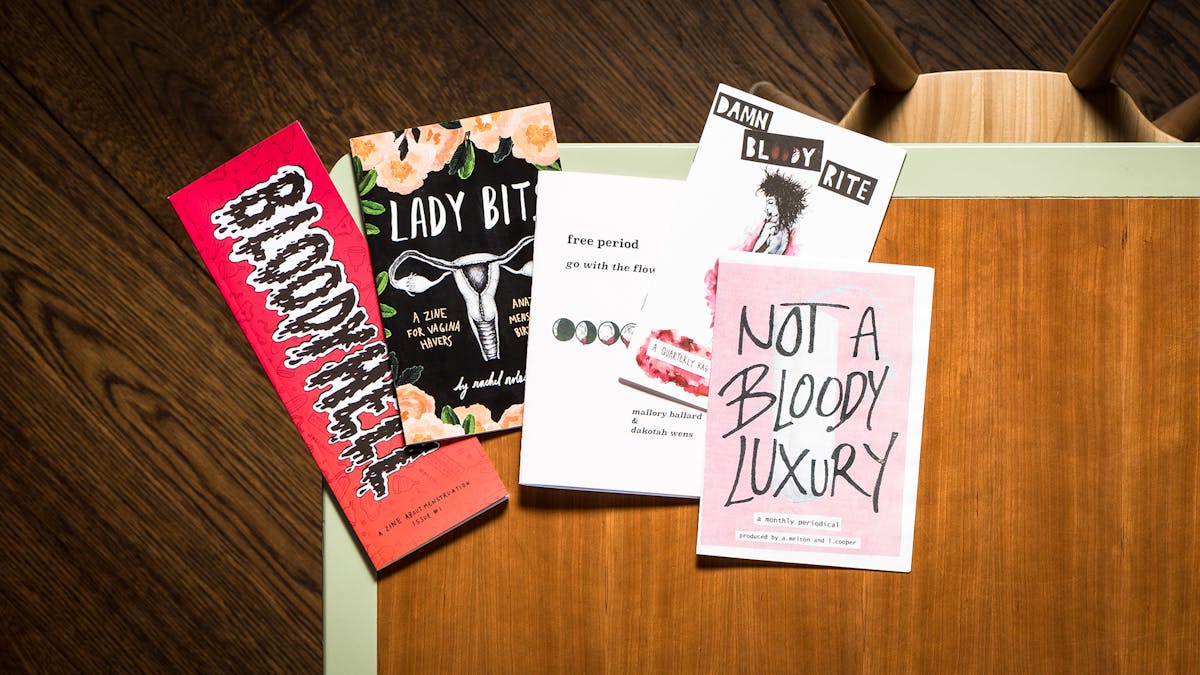
No two bodies are identical, and the same can be said for our bodily experiences. There are 3.7 billion women on the planet (and counting), each of whom will spend an average of ten years menstruating. Nevertheless, the way that we talk about periods is still constrained by decades of social, medical and religious thinking which has rarely put the menstruating body at the heart of the conversation.
In our first article about personal health zines we explored how self-publishing and informal distribution offer ways to share and communicate the experiences we have of our bodies and health. For periods and reproductive health this is even more so. Menstruation is still bound up in a confusing multiplicity of discourses ranging from punishment to privilege, and health information is presented in an often unrecognisable and clinical way.
These five zines from Wellcome Collection show just some of the ways in which it’s possible to approach this most universal and personal experience. They bring to the fore the voices that aren’t always represented in official, mass publications, but who understand it best.
Lady Bits: a zine for vagina havers
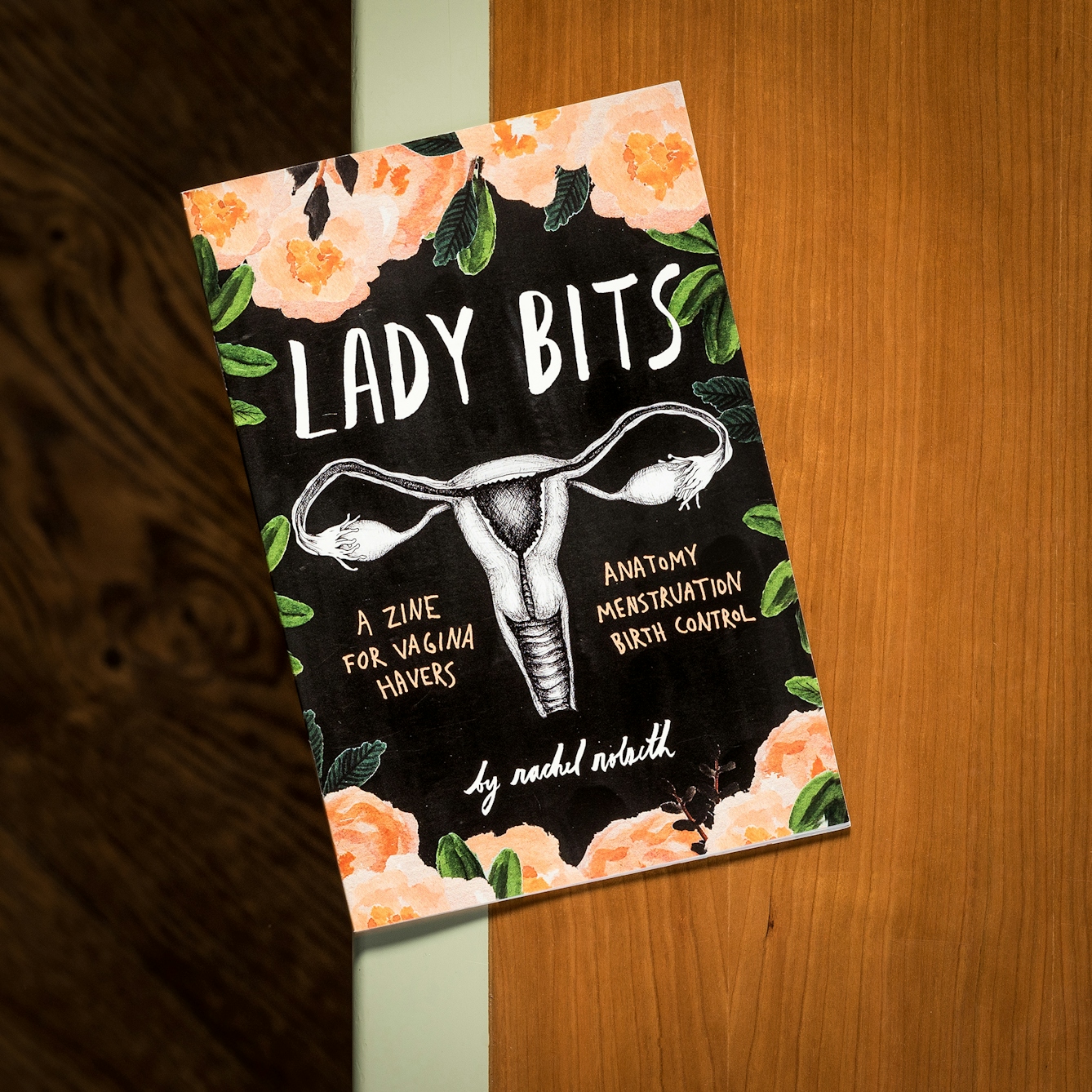
The beautiful body-positive zine, created by Rachel Rolseth, starts from the outside and works in. Using artistic anatomical illustrations, alongside scientific, academic and creative resources, it covers specific parts of female genitalia, fertility, consent and menstruation.
Two strong threads run through ‘Lady Bits‘. The first emphasises the vagina as an indicator of health, encouraging the reader to familiarise themselves with their bodies, and understand what’s normal or healthy for them (vaginal discharge, for instance, can indicate either infection or fertility, depending on what it looks like).
The second thread is the spiritual connection between menstruating bodies and the moon. This has been debated throughout history (there are scant scientific studies with evidence for and against). ‘Lady Bits’ includes a lunar calendar, less for practical synchronisation with lunar phases than a reminder that the body’s menstrual rhythm is akin to that of the regular waxing and waning of the moon.
Find ‘Lady Bits’ in our catalogue.
Damn Bloody Rite: a quarterly rag-mag
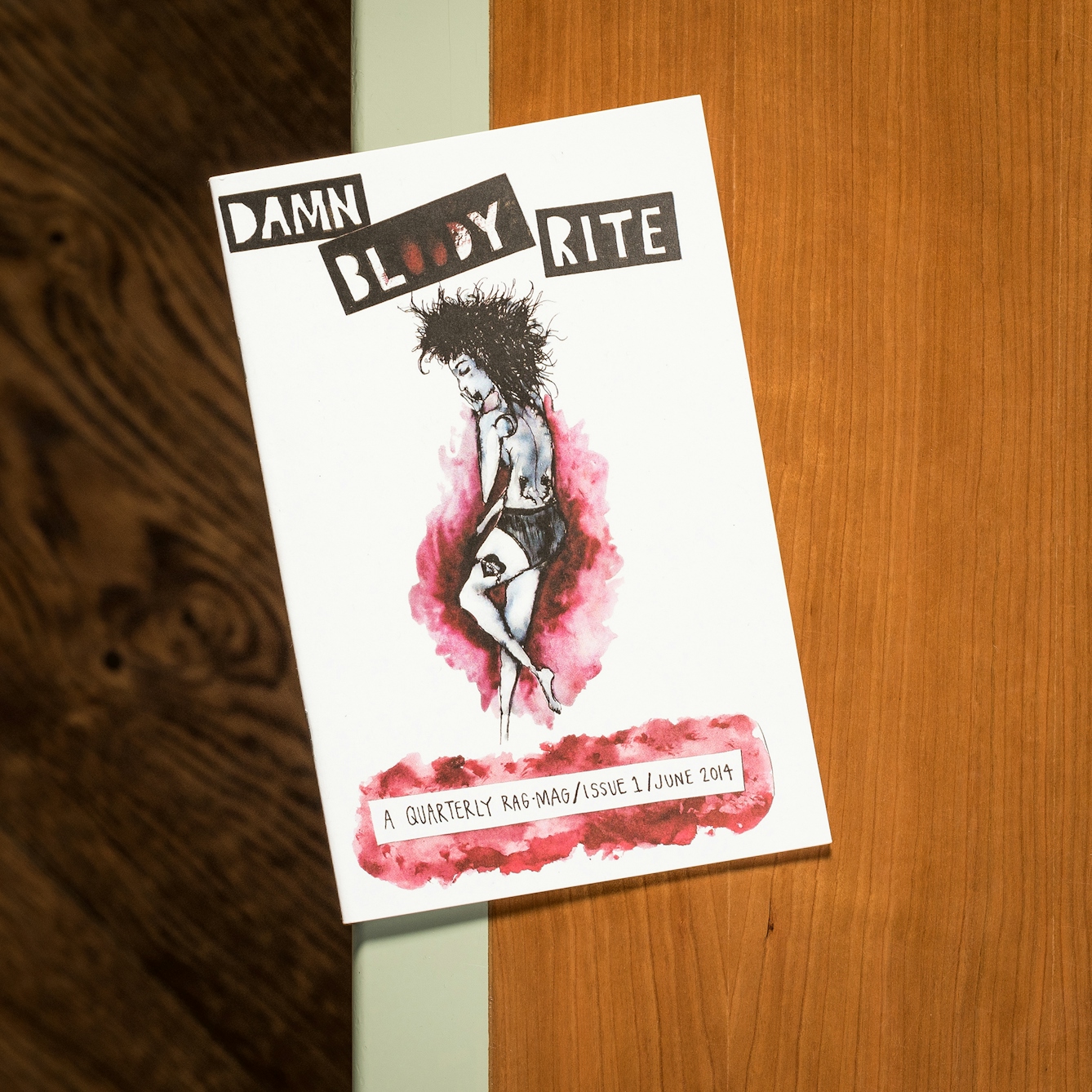
Zines lend themselves well to approaching a subject like menstruation in a nonconformist way. ‘Damn Bloody Rite’, edited by Janeen Singer and Daniela Fernández, celebrates the menstrual cycle by challenging deeply embedded, and often negative, messages about menstruation perpetuated by medicine, advertising and religion. Instead, its pages are filled with creative outputs of lived experience like short stories, poems and recipes for “moon meals”.
Unlike ‘Lady Bits’, which has a cis-female bias, this collaborative zine has a diverse representation of voices. One extraordinary contribution is ‘Cycling Out’, which chronicles the author’s experience of having a biologically female menstruating body transitioning to a male body. A long and difficult journey, the visceral monthly reminder that their body didn’t match their identity gives an unparalleled, intimate insight into the nature of menstruation.
Find ‘Damn Bloody Rite’ in our catalogue.
Free Period: go with the flow
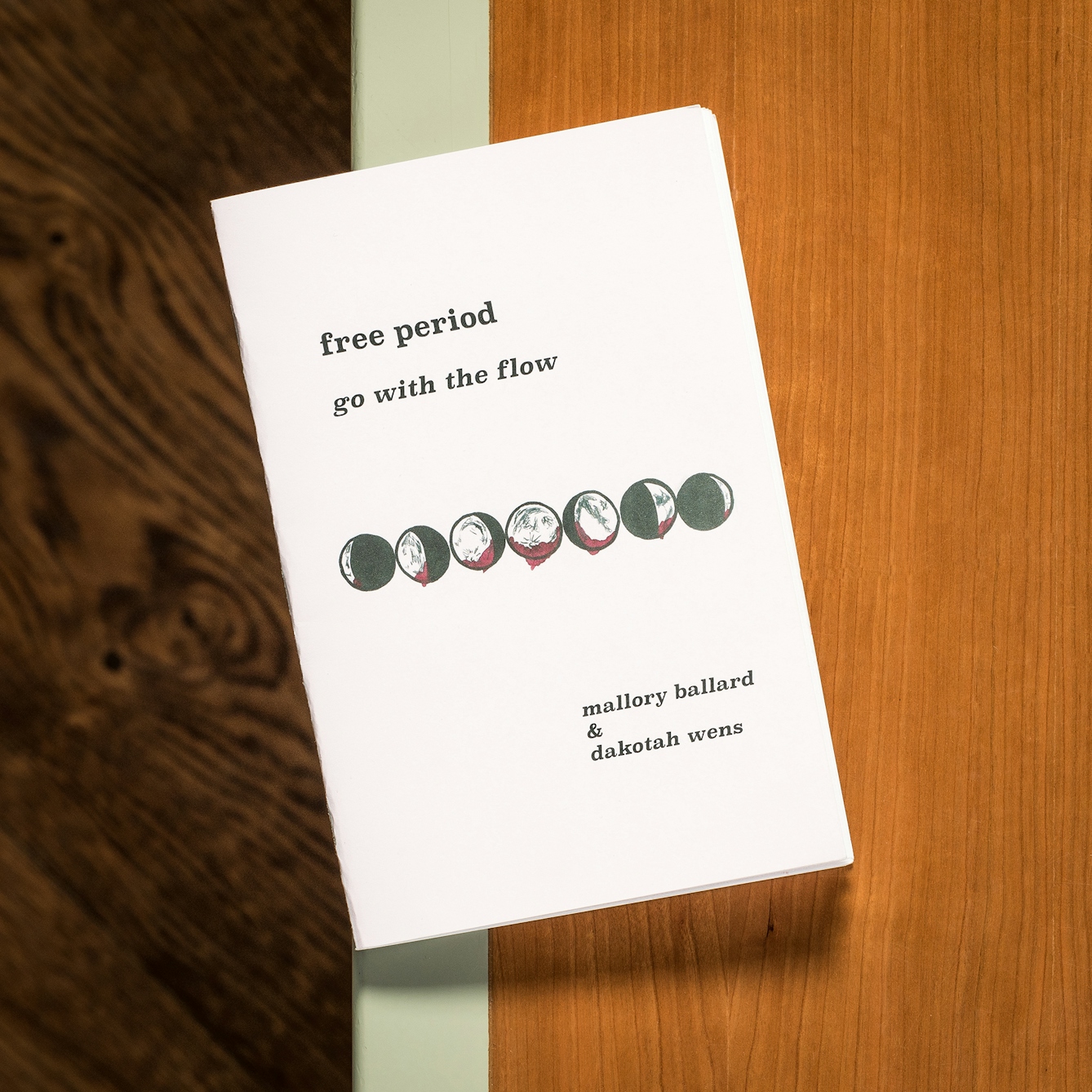
Frustrated by a lack of research into periods, and the inadequacies of health and sex education in American public schools, writer and artist Dakotah Wens and biology student Mallory Ballard (aka the two moon collective) published ‘Free Period‘. They wanted to create a knowledgeable but readable resource with open and honest depictions of menstruation to reclaim periods from the stigma of shame, discomfort and uncleanliness.
This is the most recent zine in this selection and emphasises the epidemic of menstrual inequality, using proceeds to support grassroots charities that provide menstrual products to homeless women in Houston, Texas.
Find ‘Free Period’ in our catalogue.
Not a Bloody Luxury: a monthly periodical
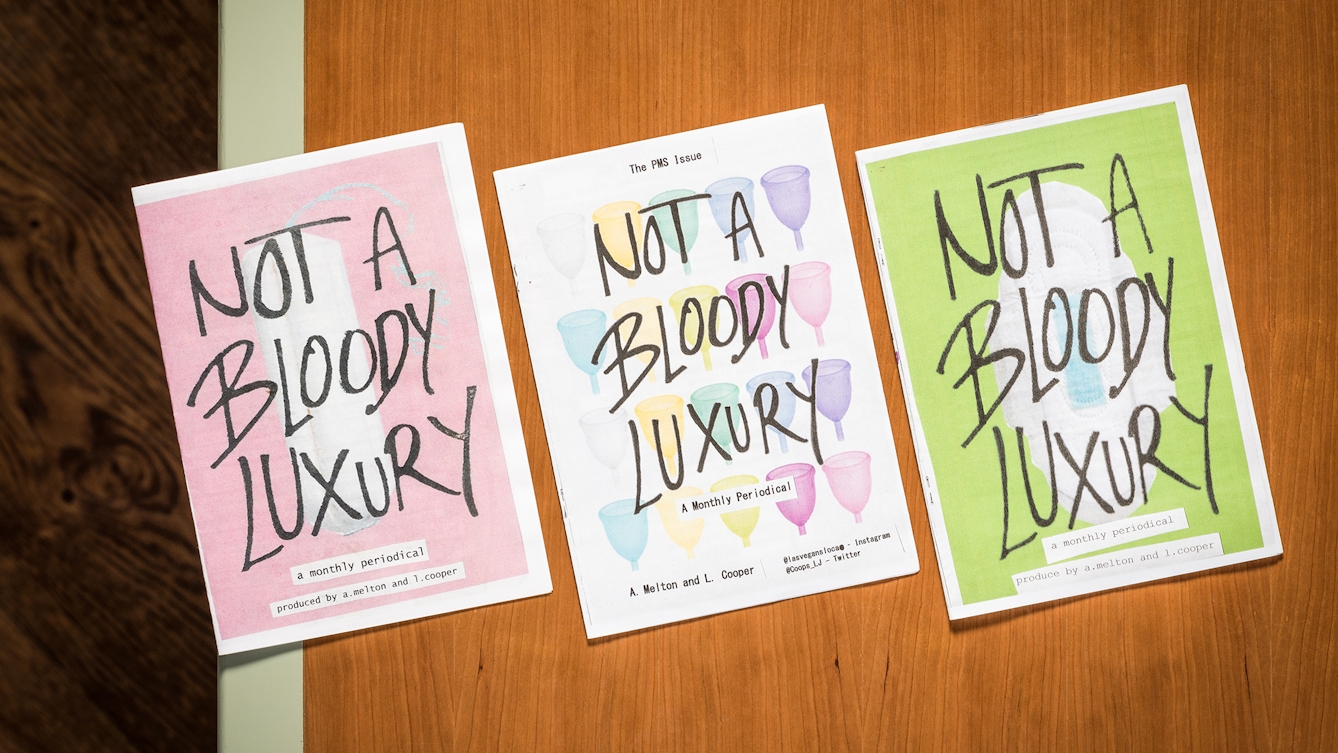
In 2015, Laura Coryton led the UK-based ‘Stop taxing periods. Period’ campaign, which led to the elimination of the ‘tampon tax’ (the five per cent value-added or luxury tax on menstrual products). Inspired by activism and support for the campaign, these three zines by Abi Melton and Lilith were released for Menstrual Hygiene Day in 2016.
They don’t limit themselves to the absurdity of menstrual products being taxed as ‘luxury’ products (alongside static caravans and edible sugar flowers!) but explore the phenomenon on a global scale. The first two parts use well-researched statistics from UNESCO and the UN, for instance, to support the dialogue around health, hygiene and the fight for menstrual equality.
The third part is the most personal and poignant. It focuses on the misrepresentation of PMS (premenstrual syndrome) and the reality of living with PMDD (premenstrual dysphoric disorder). The author hopes that their contribution will help people recognise the condition in themselves or others, and that in time “it will be treated both socially and medically with the compassion it deserves”.
Find ’Not a Bloody Luxury’ in our catalogue.
Bloody Hell: a zine about menstruation

When ‘Bloody Hell’ by Soofiya was first released, it piqued a great deal of interest in the popular press. It’s obvious why: it unites the diverse voices of intersectional menstruating bodies, but it is also crude, frank and witty, uncovering “the stories we’re often taught to hide away and consider shameful” without being patronising.
In its second limited run, ‘Bloody Hell’ uses poetry, memories, anecdotes and hilarious text message conversations *period emoji* to convey a whole spectrum of lived experiences. There’s the inconvenience of being underprepared, even after years of regular periods, to an honest discussion about menopause and a letter of thanks to a (missing) period that revealed another health condition.
Personal narratives are complemented with resource pages on common but not easily diagnosed or talked about conditions that haven’t been covered in the other zines featured here. Information on polycystic ovary syndrome (PCOS) and endometriosis is lifted from other sources to help raise awareness of symptoms and options for treatment. Lastly, an interview with #periodpositive founder Chella Quint reminds us just how much still needs to be done around menstrual education and equality.
Find ’Bloody Hell’ in our catalogue.
Help us grow our collection
We have a growing graphic medicine collection and are now collecting zines focused broadly around themes of health (both physical and mental), medicine and the human condition. If you’ve made a zine that you think would complement our collection, please email collectionsdevelopment@wellcomecollection.org. Follow us on social media to get updates on the collection’s development too!
About the authors
Nicola Cook
Nicola Cook is a librarian, and is interested in diversifying the voices and perspectives of health in our library collection. When she’s not cataloguing, she can be found discussing curious cures in the Reading Room or trawling the web for new zines.
Loesja Vigour
Loesja Vigour is a librarian who spends her time cataloguing and instagramming books for Wellcome Collection. She is interested in seeking new and diverse audiences for the collections by engaging them with unique, beautiful and thought-provoking content.

